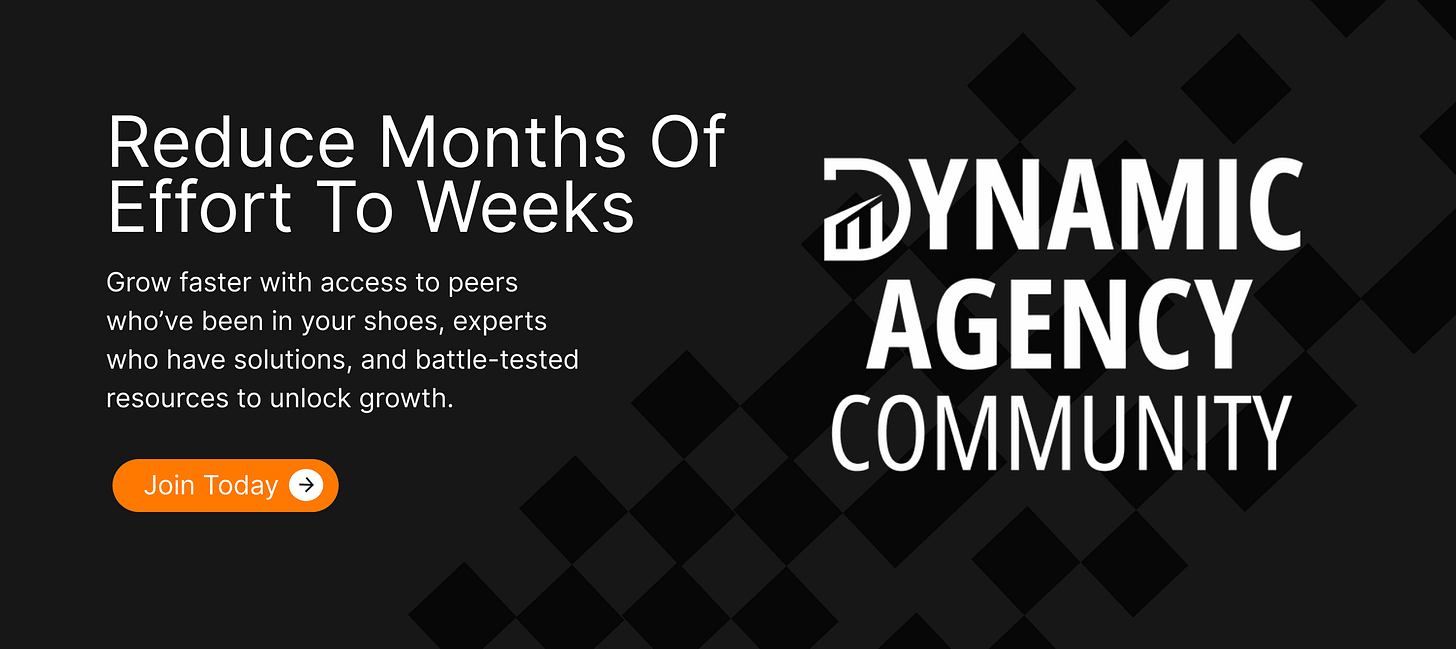Changing Your Core Offer Isn't Supposed to Be Easy
One of the biggest challenges my clients have is changing their core offer.
For most of them, they’ve accumulated a massive menu of things they offer clients, and so cutting that list down is an unsavorable effort.
Yes. Unsavorable. Like drinking orange juice after brushing your teeth.
No one wants to undo the “work” they’ve already done. But that’s the sunk cost fallacy at play. Sometimes, you have to burn the forest to get it growing.
Anyway, I thought maybe sharing the reasons it’s not easy will give agencies a better understanding of what they’re getting themselves into.
1. Your Core Offer Defines Your Agency
Your core offer is the backbone of your business model. It’s your primary driver of that sweet sweet recurring revenue.
It’s not just a service—it’s what sets you apart and defines the transformation you promise clients.
Changing it means rethinking your positioning, audience, and delivery methods.
Transitioning from offering "SEO services" to "full-funnel growth strategy" affects everything from pricing to team roles. It’s no wonder this shift feels monumental.
Changing your core offer means redefining your identity as an agency.
2. It Forces You to Question What’s Working
Revisiting your offer requires brutally honest reflection.
To change your core offer, you must evaluate what’s working, what’s not, and whether your current clients truly align with your goals.
If we’re changing your core offer, it’s likely because the original one isn’t working. And for a lot of agency founders, it’s hard to stomach that their baby isn’t growing the way they hoped.
Real growth requires confronting uncomfortable truths about your current approach. Suck up the pride and give your offer a hard look.
This is the way.
3. It Requires Rebuilding Processes
New offers mean new systems.
A core offer change isn’t just about tweaking your sales pitch—it’s about reworking your processes to deliver a new transformation. You might need to hire new talent, create different deliverables, or overhaul client onboarding. Ugh…a new onboarding system?
Rebuilding processes is the price of creating a scalable, profitable offer. And honestly, the price isn’t that high compared to the value you can get.
4. You Risk Losing Clients
Not all your current clients will fit your new direction.
Shifting your offer might mean letting go of clients who no longer align with your focus. This can feel like a setback, but it’s necessary to attract the right clients who value your new offer.
Losing clients is part of the journey to finding better ones. But also, nothing says you have to pull the rug out from under them.
You can explain you’re shifting and give them a timeline that you’ll continue to honor your agreement. If they want to shift to the new plan now, even better. But you’re not just kicking them out to the wolves.
5. It Takes Time to Get It Right
There’s no shortcut to nailing a core offer change.
Rolling out a new offer involves testing, iterating, and fine-tuning based on client feedback. The first version won’t be perfect, and that’s okay. Use early clients as case studies to refine your offer and messaging.
For instance, a new "done-with-you" service may require adjusting the balance of hands-on guidance versus client autonomy.
Ready to Redefine Your Agency’s Future?
Yeah, it’s not supposed to be easier. But there are things you can do to not feel so much of the burden.
Step one is hiring a coach who specializes in this kind of work. I can introduce you to one.
Also, getting your team on board early can pay dividends. Change management is much easier when the entire team takes part.
Whatever you do, make sure changing your core offer is important. Because as you’ve read, it’s a shitload of work.


